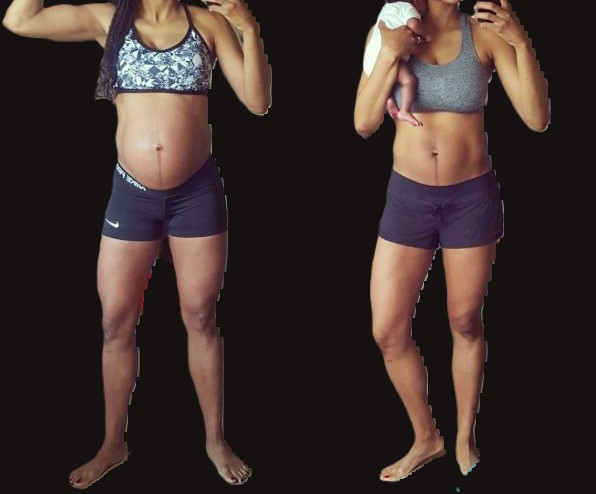In the journey of motherhood, the postpartum period holds significant importance, marking a phase of both joy and challenges. Following childbirth, a mother’s body undergoes a series of intricate adjustments, both physically and hormonally. Among the pivotal aspects of postpartum care is nutrition, which plays a crucial role in aiding recovery, sustaining breastfeeding, and promoting overall well-being.
Importance of Prenatal Vitamins Postpartum
The postpartum phase demands meticulous attention to nutritional needs, as the body recuperates from the rigors of childbirth while simultaneously nourishing the newborn. Prenatal vitamins ( 1 ) emerge as indispensable allies during this period, offering a concentrated source of essential nutrients vital for maternal health and the development of the infant.
Suggestions: From Periods to Menopause: Navigating Hormonal Changes with Grace
Nutritional Needs Postpartum
The postpartum period witnesses a surge in nutritional demands, driven by the body’s efforts to heal and nurture. Adequate intake of key vitamins and minerals becomes imperative to support tissue repair, enhance energy levels, and foster optimal health. Moreover, for lactating mothers, nutrient requirements escalate to sustain milk production and cater to the growing needs of the nursing infant.
Role of Prenatal Vitamins
Prenatal vitamins stand out as a cornerstone of postpartum nutrition, designed to address the heightened nutritional requirements characteristic of pregnancy and lactation. Enriched with essential nutrients such as folic acid, iron, calcium, vitamin D, and omega-3 fatty acids, these supplements offer comprehensive support for both maternal and fetal well-being.
How Long to Take Prenatals Postpartum
Immediate Postpartum Period
In the immediate aftermath of childbirth, the continuation of prenatal vitamin supplementation is strongly advocated to facilitate the body’s recovery process and replenish depleted nutrient reserves. Healthcare providers typically recommend maintaining prenatal vitamin intake for a minimum of six weeks postpartum to ensure adequate nourishment during this critical phase.
Extended Postpartum Period
Beyond the initial six-week timeframe, the duration of prenatal vitamin usage may extend based on individual circumstances and healthcare provider recommendations. While some mothers may opt to discontinue supplementation after the prescribed period, others may choose to prolong intake for several months or even up to a year postpartum to sustain optimal nutritional support.
Factors Influencing Duration
Individual Health Factors
Women with preexisting health conditions or nutritional deficiencies may necessitate prolonged usage of prenatal vitamins postpartum to address specific dietary gaps and promote optimal health outcomes. Healthcare professionals tailor recommendations based on individual health assessments, ensuring personalized supplementation strategies.
Breastfeeding
For lactating mothers, the decision regarding the duration of prenatal vitamin usage is closely intertwined with breastfeeding practices. The continued provision of essential nutrients through prenatal vitamins helps meet the elevated nutritional demands associated with lactation, thereby supporting maternal well-being and infant development.
Dietary Intake
While prenatal vitamins serve as valuable supplements, they are not intended to replace a wholesome diet comprising nutrient-rich foods. Emphasizing a balanced and varied dietary intake enriched with fruits, vegetables, lean proteins, and whole grains remains pivotal for postpartum recovery and sustained health. Prenatal vitamins complement dietary efforts by bridging potential nutrient gaps, thereby reinforcing overall nutritional adequacy.
Recommendations for Prenatal Vitamin Use
Healthcare providers play a pivotal role in guiding mothers through the postpartum period, offering tailored recommendations regarding prenatal vitamin usage based on individual health profiles, dietary habits, and breastfeeding practices. Collaborative discussions between mothers and healthcare professionals facilitate informed decisions regarding the duration and dosage of prenatal supplements, ensuring optimal maternal and infant health outcomes.
Potential Risks and Side Effects
While prenatal vitamins are generally well-tolerated, some individuals may experience mild side effects such as nausea, constipation, or allergic reactions. Prompt communication of any adverse symptoms to healthcare providers enables timely assessment and adjustment of supplementation regimens to mitigate discomfort and ensure therapeutic efficacy.
Conclusion
In essence, the duration of prenatal vitamin usage postpartum hinges on a multitude of factors, including individual health considerations, breastfeeding practices, and dietary habits. While a minimum supplementation period of six weeks is commonly recommended, tailored guidance from healthcare providers empowers mothers to make informed decisions aligning with their unique needs and circumstances. By prioritizing postpartum nutrition and embracing personalized supplementation strategies, mothers can embark on a journey of maternal wellness and optimal infant development.
